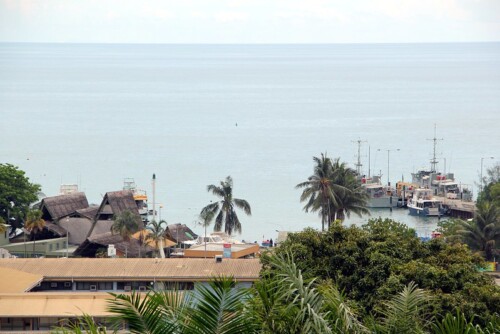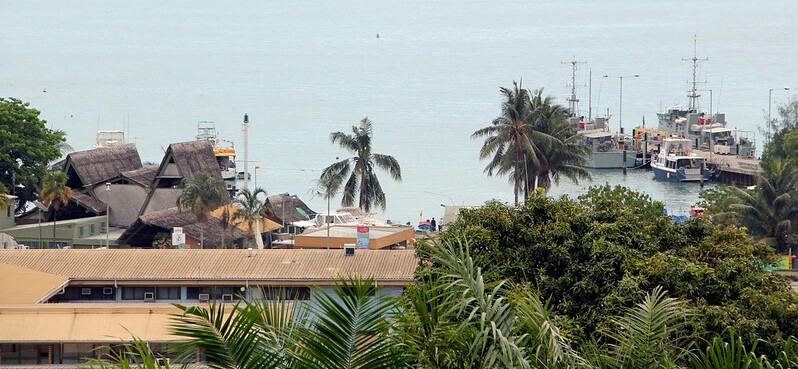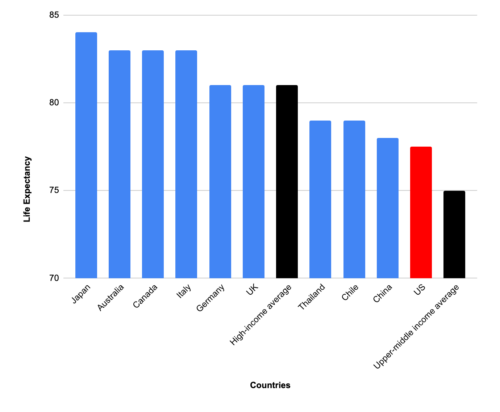PPI’s Trade Fact of the Week: The U.S. GSP system has been lapsed for over 2 1/2 years
By: / 07.26.2023
FACT: The U.S. GSP system has now been lapsed for over 2 1/2 years.
THE NUMBERS: Packaged tuna imported from the Solomon Islands –
2021 – 2023 None
2018 – 2020 440 tons per year
WHAT THEY MEAN:
A passage from State Department a briefing by two “senior official”-types, in the runup to Secretary Blinken’s trip a month back:
“…in competition with China … managing the competition responsibly … America’s ability to outcompete China … major strides … an approach that is competitive without veering into confrontation … as the competition continues … intense competition requires intense diplomacy … working with competitors when our interests call for it … competing vigorously and talking with the PRC on a range of issues … manage the competition, and work together when our interests align from a position of confidence…”
Point probably made … “competing in noun, verb, and adjectival forms. With that in mind, a depressing story featuring (a) a small Pacific island country currently an object of this “competition,” (b) 500 missing tons of canned tuna, and (c) the also missing U.S. Generalized System of Trade Preferences (“GSP”), a duty-free program for low- and middle-income countries which, launched in 1974, has been “lapsed” in the midst of Congressional arguments over eligibility rules since New Year’s Day 2021:
The country: Home to 708,000 people and one of the GSP’s 119 “beneficiary countries,” the Solomon Islands are geographically a string of six big islands and 986 smaller ones extending southwest from Papua New Guinea toward Vanuatu and Fiji. The Solomons’ economy mostly runs on three things: (a) tourism; (b) exports of rosewood, akua, and other local timber; and (c) fisheries for export and local use. The first pillar, tourism, went down under the COVID shock and has yet to recover. Since then, and with the caution that GDP data is jumpy for small island countries, the Solomons’ post-COVID economic figures look dire. The International Monetary Fund reports that after shrinking by -3.5% in 2020, the Solomons’ economy contracted again by -0.6% in 2021 and by -4.1% in 2022, though a small +2.5% rebound looks likely this year.
“Competition” (1): Meanwhile, the Solomons have won an uneasy place as a center of attention in the “competition” the two U.S. senior-official briefers were talking up in June. This has featured in sequence an early 2022 “security agreement” with China carrying murky hints of intelligence and naval strategy; controversy over it within both S.I. politics and the 16-country Pacific Forum (the principal regional association for Pacific Islands states); then the rapid opening of a new U.S. embassy in Honiara last February, all accompanied by strings of press releases from the U.S. and China announcing new aid programs, important visits, etc.
“Competition” (2): With respect to the second and third growth drivers noted above, China buys most of the Solomons’ wood exports, valued at up to $200 million a year — half of the Solomons’ annual export earnings and an eighth of their $1.6 billion GDP. Until 2020, Americans were offsetting this, more in wage-paying employment than in dollars, through purchases of 400-500 tons of packaged tuna a year, from the cannery at Noro in New Georgia. Again noting that small-country economic stats can be blurry, an Australian press analysis asserts that the cannery contributes fully 18% of the Solomons’ national GDP. ILO figures, meanwhile, suggest that its 2,000 employees account for about one in thirty of the country’s 65,000 wage-earning, formal-sector workers.* Canned tuna is normally a very high-tariff product in the U.S., taxed at rates ranging from 12.5% to 35%, but through 2020 GSP was waiving these tariffs for least-developed countries like the Solomons and gave them a regular set of American buyers
The missing tuna: Not for the last three years, though. GSP benefits are not permanent, but have been periodically “reauthorized” by Congress for periods of ten years, three years, 1.5 years, and so forth. When the program lapsed at the end of 2020, canned tuna ceased moving from Noro to Hawaii and California. Since then, as Congress has argued over how many new eligibility rules to add, no more tuna has come in. Americans are actually buying more than before – about 210,000 tons per year before 2020, now about 240,000 tons — but buyers of the Solomons’ modest shipments appear to have shifted to larger Southeast Asian and Latin American sources.
Final thought: The “competition” in the briefers’ comments above is a metaphor drawn mainly from sports or games. “Competitors” who put only part of their teams on the field are typically at a disadvantage, and often don’t finish first.
* According to the International Labour Organization, the Solomon Islands have a “labor force” of 370,000, of whom 18%, or about 65,000, have wage-paying jobs. The other 305,000 are “own account” workers in agriculture, odd jobs, and temporary work. In American terms, 18% of GDP would translate to “the combined economies of California, Oregon, and Washington”, and 3% of wage-paying employment would be comparable to “all the workers in Georgia” or “all the workers in Michigan.”

FURTHER READING
GSP:
Reps. Jake Auchincloss (D-Mass.) and Neal Dunn (R-Fla.) with 64 others urge rapid GSP renewal.
The Solomon Islands’ Department of Foreign Affairs and External Trade.
PPI’s Ed Gresser has thoughts on GSP renewal.
… and the Pacific islands, GSP, and a possible regional trade preference program.
“Competition”:
Solomon Islands Prime Minister and opposition parties debate the cost of, and the value of, new China agreement.
… and Papuan analyst Patrick Kaiku, writing for the Sydney-based Lowy Institute, looks at China-Pacific island security agreements.
NSC and State Asia leads preview Secretary Blinken’s Beijing visit.
Meanwhile, the Chinese embassy in Honiara has a list of new aid projects.
And the White House outlines a “Pacific Partnership Strategy.”
Tuna & trees:
The Australian Broadcast Corporation tours the Noro tuna plant.
Solomon Islands business analysts on the state of the industry.
A gloomy Guardian report on the Solomons’ shrinking forests.
And a U.S. policy bright spot — the Millennium Challenge Corporation’s sustainable forestry project.
ABOUT ED
Ed Gresser is Vice President and Director for Trade and Global Markets at PPI.
Ed returns to PPI after working for the think tank from 2001-2011. He most recently served as the Assistant U.S. Trade Representative for Trade Policy and Economics at the Office of the United States Trade Representative (USTR). In this position, he led USTR’s economic research unit from 2015-2021, and chaired the 21-agency Trade Policy Staff Committee.
Ed began his career on Capitol Hill before serving USTR as Policy Advisor to USTR Charlene Barshefsky from 1998 to 2001. He then led PPI’s Trade and Global Markets Project from 2001 to 2011. After PPI, he co-founded and directed the independent think tank Progressive Economy until rejoining USTR in 2015. In 2013, the Washington International Trade Association presented him with its Lighthouse Award, awarded annually to an individual or group for significant contributions to trade policy.
Ed is the author of Freedom from Want: American Liberalism and the Global Economy (2007). He has published in a variety of journals and newspapers, and his research has been cited by leading academics and international organizations including the WTO, World Bank, and International Monetary Fund. He is a graduate of Stanford University and holds a Master’s Degree in International Affairs from Columbia Universities and a certificate from the Averell Harriman Institute for Advanced Study of the Soviet Union.
Read the full email and sign up for the Trade Fact of the Week






